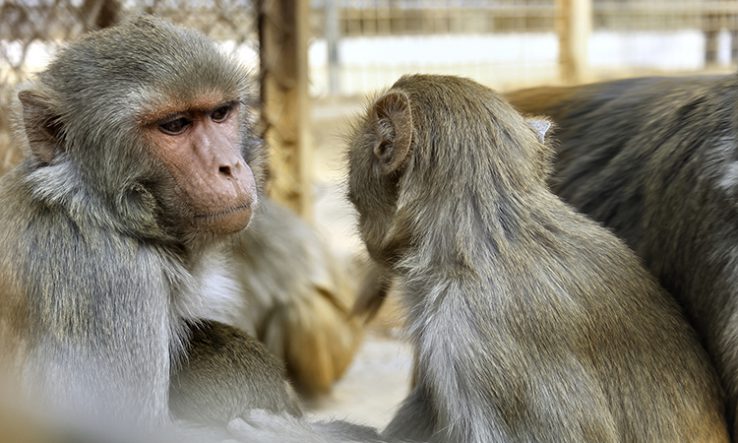
Group asks European Commission to protect biomedical research, including on Covid-19
A body that advocates for the responsible use of animals in research has called on the European Commission to take urgent action over a Chinese ban on the export of non-human primates, implemented in response to Covid-19, which the body says is hampering European research on the pandemic.
The European Animal Research Association said in a January letter to the Commission and World Trade Organization that China’s export ban was “indefensible” as it “harms human health by creating obstacles to and additional expenses for the development of vaccines and therapeutics, including for Covid-19”. It also claimed that the ban “has had a very significant impact on both the supply and the cost of non-human primates around the world”.
Eara said the ban was a violation of WTO rules against trade barriers and was “yet another means of advancing China’s home-grown pharmaceutical industry over the interests of competitors from other countries”.
Responding to the criticisms, a spokesperson for the Chinese government Mission to the EU told Research Professional News the ban was “for the purpose of epidemic containment”.
“The decision is not targeted at a specific kind of animal, nor at specific countries. When to resume the export depends on the international epidemic situation and on whether export conditions are ready,” the spokesperson said, adding that China “would consider resuming export approval” after the “epidemic situation improves and export conditions are met”.
In its letter, Eara called on the Commission to “employ all means at its disposal to pursue China’s compliance with its WTO obligations”, including by lodging a formal complaint with the global body.
The Commission declined to comment, but EU sources said it had acknowledged Eara’s letter and was “in the process of examining it”. The WTO also declined to comment. It would not take action unless a dispute was raised by a member.
‘Existential threat’
Speaking to Research Professional News on 26 February, Eara’s executive director Kirk Leech said the ban remained an “existential threat” to research in Europe and there was “no indication [it] will be overturned anytime soon”.
Leech said he was gathering “concrete evidence of the public health danger” of the ban and its “impacts on European life science investment and jobs” from Eara’s 100-plus membership of biomedical research organisations, companies and societies, and that some members are having to decide which research studies to take forward because of a shortage of animals.
He said the association would provide this evidence to the Commission, which he claimed was “sympathetic” to Eara’s concerns.
Leech said China’s ban may have been “prudent” at the beginning of the Covid-19 pandemic, but that environmentally controlled transport and personal protective equipment make the risks of disease transmission to humans very small.
Primates ‘essential’ for vaccine development
While primates make up less than one per cent of the animals used for research in Europe, Leech said they are essential for certain work, such as late-stage vaccine development, neuroscience and work on drugs derived from living organisms, known as biologics.
Most primates used in European research are sourced from the African island nation of Mauritius, but animals are typically bought up years in advance by researchers in the EU and United States, making Chinese sources valuable, Leech said.
“If you wanted to build a breeding centre for primates it would take five years,” he said. “You can’t offer more money to breeders to breed them quicker.”
Leech said primates cost on average £10,000-£15,000 (€12,000-€17,000) each, and added: “In a period of stagnating supply but growing demand, the prices are not going down.”
The ban could result in research being relocated, he warned, saying: “Global companies will move to where you can do the R&D.”